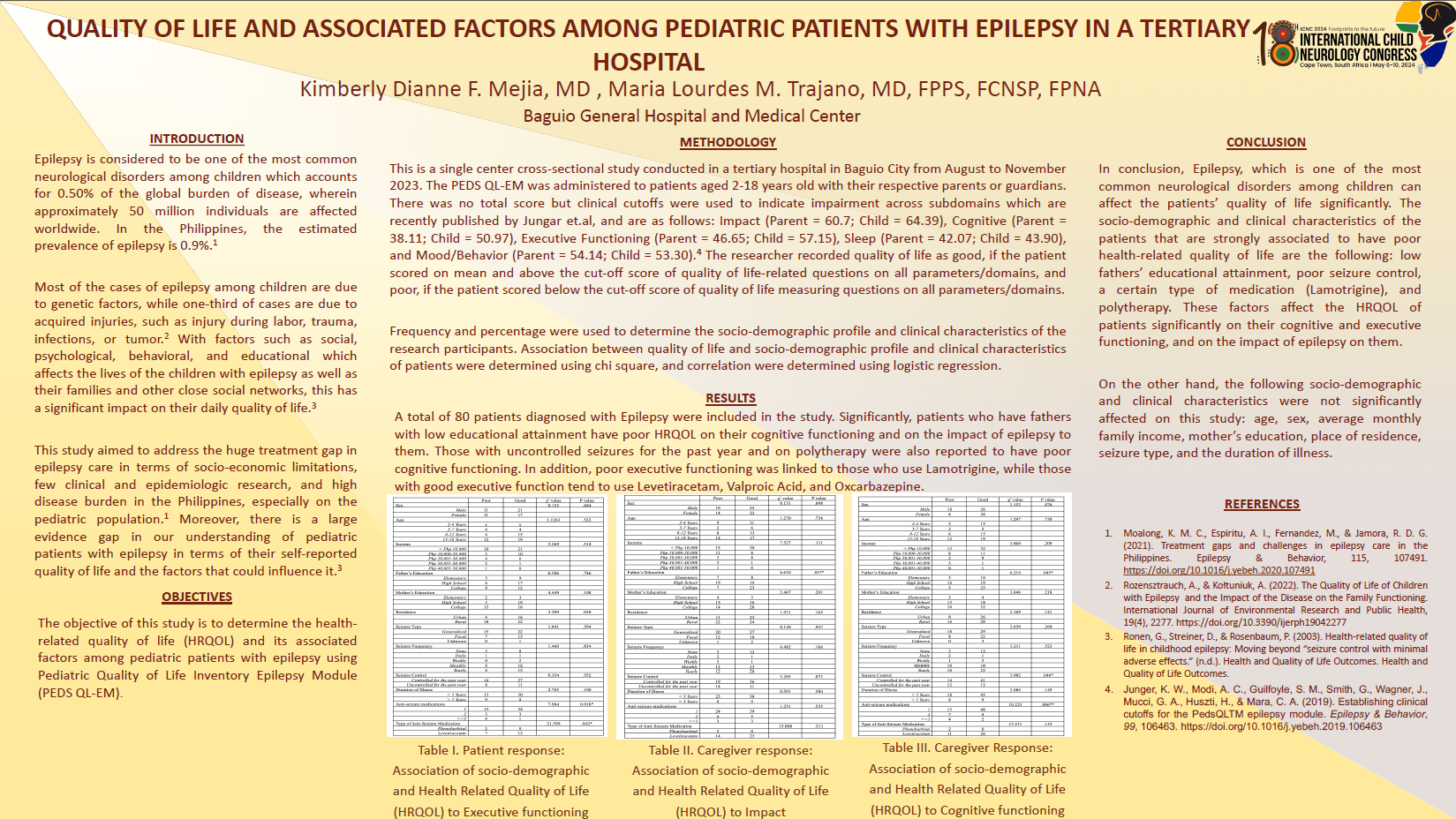Quality Of Life And Associated Factors Among Pediatric Patients With Epilepsy In A Tertiary Hospital
INTRODUCTION: Epilepsy is considered to be one of the most common neurological disorders among children which significantly affects their quality of life, and eventually has an effect on their psychosocial development. The objective of this study is to determine the health-related quality of life (HRQOL) and its associated factors among pediatric patients with epilepsy using Pediatric Quality of Life Inventory Epilepsy Module (PEDS QL-EM). METHODS: This is a single center cross-sectional study conducted in a tertiary hospital from August to November 2023. The PEDS QL-EM was administered to patients aged 2-18 years old with their respective parents or guardians. RESULTS: A total of 80 patients diagnosed with Epilepsy were included in the study. Significantly, patients who have fathers with low educational attainment have poor HRQOL on their cognitive functioning and on the impact of epilepsy to them. Those with uncontrolled seizures for the past year and on polytherapy were also reported to have poor cognitive functioning. In addition, poor executive functioning was linked to those who use Lamotrigine, while those with good executive function tend to use Levetiracetam, Valproic Acid, and Oxcarbazepine. CONCLUSION. Epilepsy and associated factors have significant effects to the HRQOL of patients. The PEDS QL-EM is a sensitive tool which was able to address the evidence gap on the understanding of these patients on their self-reported quality of life. Keywords: Epilepsy, Pediatric, Health-related Quality of Life, Pediatric Quality of Life Inventory Epilepsy Module
Kimberly Dianne Mejia
Baguio General Hospital and Medical Center
Philippines
Maria Lourdes Trajano
Baguio General Hospital and Medical Center
Philippines

Kimberly Dianne Mejia
Baguio General Hospital and Medical Center
Philippines